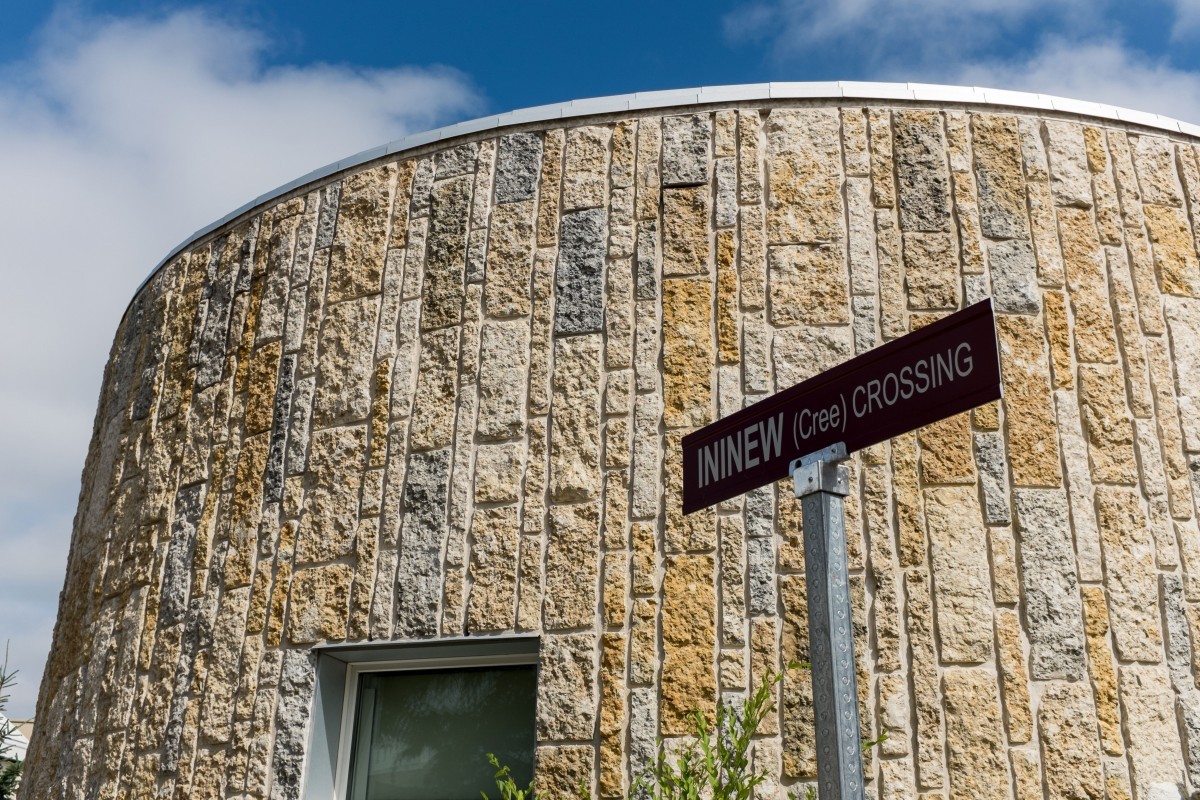
Just outside of Migizii Agamik-Bald Eagle Lodge, which houses the Aboriginal Student Centre and the access and Aboriginal focus programs.
Minding the gap: Proactive Indigenous symposium to focus on maths and sciences
Developing a dialogue about science and math curricula for Indigenous students is crucial, says Rod Lastra. The program director (math and science) within the access and Aboriginal focus programs has initiated the first-ever U of M workshop to further that dialogue. The free two-day Indigenous Math and Science Symposium is hosted by access and Aboriginal focus programs and takes place at the university on Monday, August 25 and Tuesday, August 26.
Many students coming in from Northern communities don’t have the basics and foundations of math and science, says Lastra. “Some have never set foot in a lab. They don’t have the required skills to complete and be successful at a first year mathematics or science course such as calculus, chemistry or biology.” There are also mature students coming into the educational stream after five, 10, or more years, he adds.
“All of those factors can be overwhelming for students coming into a post secondary institution. They’re expected to do well, to succeed and move forward but these are barriers they face.”
Part of the challenge, then, is to be proactive about meeting those needs. “There definitely is a gap that we have to be mindful of,” he says. “Those issues have been known for quite some time, and it’s our aim to be able to face those issues head on in a progressive manner.”
Lastra: “There definitely is a gap that we have to be mindful of … and it’s our aim to be able to face those issues head on in a progressive manner.”
As the U of M recruits more students from Northern areas of the province in keeping with our strategic pillar of Indigenous achievement, Lastra explains, “the idea is that we have to be able to have the capacity within our unit of the ever-growing need of what the students require.”
Rather than send students away to improve their qualification for university programs, the university is finding ways of addressing them, he says.
The workshop will look at approaches taken by others in order to develop a pedagogical model and best practices.
“Which is why we’ve invited other academics who have developed courses and programs [for Indigenous students],” says Lastra. “The [U of M] has expertise in this area as well, but it’s really nice to be able to put that into perspective.”
The workshop is open to all faculty, students and others interested in furthering the educational stream for Indigenous students by developing culturally relevant curricula that also integrates Indigenous knowledge where possible, he adds.
“There is no doubt that there are issues we can deal with, but when it comes to underrepresentation, the maths and sciences are an area of concern. Our students, given the right resources, do excel, but we know that there are multiple barriers to be overcome.”
— Mariianne Mays Wiebe
Indigenous Math and Science Symposium
This is a free event. Coffee and tea will be provided. Pre-registration or RSVP is not required.
Monday August 25, 2014, 9:00 AM to 4:30 PM, Robert Schultz Lecture Theatre
Tuesday August 26, 2014, 9:00 AM to 4:30 PM, 118 St. John’s
Presenters include:
Opening remarks by Ovide Mercredi, Deborah Young, executive lead, Indigenous achievement, Gary Hepburn, dean, Extended Education, Diedre Desmarais, area director, access and Aboriginal focus programs
Randy Herrmann, Engineering access program (ENGAP), University of Manitoba
Diana Klassen Laurie, ENGAP, University of Manitoba
Lyle Mueller, University of British Columbia
Javad Tavakoli, mathematics, University of British Columbia, Okanagan
Ed Doolittle, mathematics, First Nations University of Canada
Cynthia Annett, ecology, University of Kansas and advisor for the Native American Science Curriculum project, funded by the National Science Foundation
Dawn Sutherland, University of Winnipeg, Canadian Research Chair in Indigenous Science Education
For more information, contact Rod Lastra, Access and Aboriginal Focus Programs at 204 272-1581.
Hosted by access and Aboriginal focus programs
Sponsored by the Office of Indigenous Achievement, Extended Education and Faculty of Science
Error thrown
Object of class WP_Error could not be converted to string






